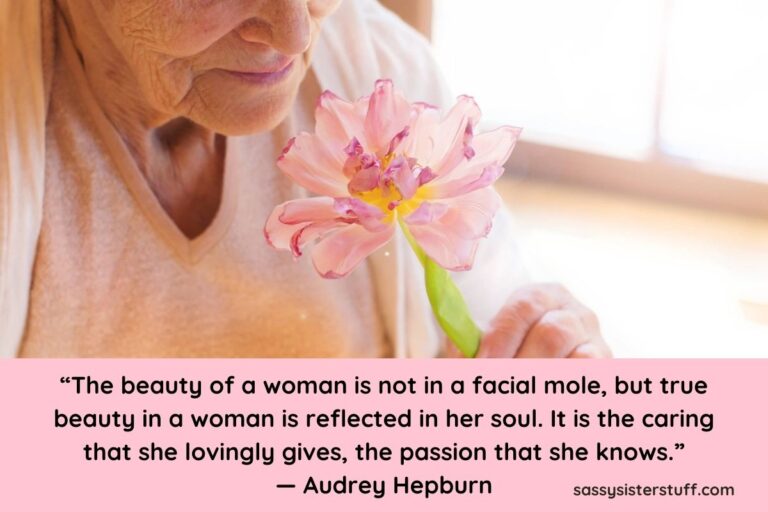15 Online Habits That Accidentally Make You Look Desperate and How to Avoid Them Easily
Your online behavior can shape how others perceive you, often in ways you might not expect. The way you interact on social media or through messages can unintentionally send the wrong signals.
Let’s look at common habits that can make you appear desperate online—and how to avoid them.
Constantly posting selfies to seek likes

Posting selfies frequently, especially just for likes or comments, can make you seem desperate for attention. People notice when updates feel more about validation than genuine sharing.
Spending lots of time perfecting selfies with filters and angles can turn into a cycle of craving digital applause. This can make your posts feel less about you and more about others’ opinions.
Frequent selfie sharing may suggest insecurity or a need to prove something. If you measure your worth by likes and comments, it’s time to step back.
A modest approach to sharing photos feels more genuine and can get better responses. For more insight, see how social media and narcissism often connect to selfie habits.
Tagging yourself in every event photo
Tagging yourself in every event photo can look like you’re fishing for attention. Others might think you rely on social media validation to feel important.
Over-tagging can annoy friends and followers, making them feel overwhelmed by constant updates. Sometimes people tag themselves hoping to increase visibility, but this can backfire.
Let others tag you naturally and share moments more selectively. Quality matters more than quantity when it comes to sharing your social life online.
For more details on photo tagging etiquette, check out tips on when and when not to tag someone on social media.
Posting vague cries for help
Posting vague messages about problems without details can seem like a cry for attention. These “vaguebooking” posts often leave friends confused about how to respond.
You might want support but find it hard to say what’s wrong. Vague posts can make you seem uncertain or desperate for validation.
If you need support, be clearer about how you feel or what you need. This helps others respond in a meaningful way.
Unclear messages often get empty sympathy rather than real help. Being open encourages honest conversations and can make you feel better.
Recognizing this habit can help you find healthier ways to connect without misunderstandings.
Bombarding friends with too many messages
Sending too many messages in a short time can overwhelm friends. Your texts may start to feel like a constant demand for attention.
It’s okay to check in, but pacing your messages keeps things balanced. If you text several times a day without waiting for a reply, it can come across as clingy.
Save some thoughts for later or wait for a response before sending more. This shows respect for their time and makes your messages more meaningful.
If a friend sends you frequent texts, setting boundaries can help maintain a healthy connection.
Over-sharing personal struggles online

Sharing too many personal struggles on social media can seem like seeking constant validation. Repeated posts about financial problems, job issues, or family drama might make others see you as overwhelmed.
Oversharing can push people away and make your profile feel more like a venting space than a place for connection. Setting boundaries on what you share protects your privacy and relationships.
Consider talking to close friends or family in private instead of broadcasting every difficulty. Pausing before you post can help you decide if sharing is necessary.
Finding healthier outlets for your struggles, like support groups or professional help, can make a big difference.
Frequently checking and reacting instantly to notifications
Constantly checking notifications can make you seem overly eager or impatient. It sends the message that you can’t wait to hear back.
Reacting immediately to every alert can distract you and make your responses seem rushed. Try setting specific times to check notifications instead of reacting right away.
Turning off non-essential alerts or charging your phone outside your bedroom can help break the cycle. Giving yourself space helps you feel more in control and less stressed.
This way, your interactions will appear more confident and relaxed.
Changing opinions just to fit in online
Shifting your views to match what most people say online can make you seem unsure or desperate for approval. Constantly adjusting your stance may cause others to question your authenticity.
It’s okay to have different thoughts or disagree respectfully. Sharing your true opinions builds trust and shows confidence.
Your brain naturally wants to align with the group, but holding onto your beliefs sets you apart in a positive way. Don’t be afraid to express what you really think.
Being genuine online means more than just blending in—it’s about standing out for the right reasons. For deeper insights, see this Forbes article on how our brains adjust opinions.
Commenting on every post just to get attention
Commenting on nearly every post you see can seem like trying too hard to get noticed. Excessive commenting may signal a strong need for validation.
Your goal might be to be seen, but nonstop comments can overwhelm others or seem insincere. Focus on meaningful responses instead of commenting just to be noticed.
Quality over quantity makes your comments carry more weight and shows genuine interest. A few well-considered comments are better than dozens for the sake of engagement.
Using excessive filters on every photo

Using filters on every photo might signal that you’re not confident in your natural appearance. Constantly altering your look can make others wonder if you’re seeking approval.
Filters are fun, but relying on them all the time can affect how you see yourself. It can chip away at your confidence and make you feel like your real self isn’t enough.
Presenting a filtered version of yourself makes it harder for people to connect with the authentic you. Balance helps you stay genuine and relatable.
Publicly begging for validation or compliments
Openly asking for compliments or validation can come across as desperate. Posting messages like “Do I look good today?” often signals a need for reassurance.
It’s natural to want acknowledgment, but constantly seeking it from others may make people think you lack confidence. Instead, focus on appreciating yourself first.
Pause before posting if you catch yourself fishing for compliments. Reflect on whether you can give yourself the recognition you deserve.
Sharing excessive throwback photos repeatedly
Throwback photos are a fun way to share memories, but posting them too often can seem like you’re seeking attention. Sharing the same moments frequently may make others wonder if you’re stuck in the past.
Balancing old photos with fresh content shows you appreciate your history without relying on it too much. Mix throwbacks with current updates to keep your feed interesting.
Overdoing throwbacks can make others feel like you want extra reassurance. Keeping your posts varied helps you avoid that impression.
Posting relationship status updates too often
Sharing every little detail about your relationship can look like you need constant validation. Posting too often might make others wonder if you’re trying to prove something.
Sometimes, couples who post frequently are actually feeling insecure or unsure about their relationship. People who are happy often don’t feel the urge to broadcast every moment online.
Check in with your partner before posting about your relationship. Talking about how much you both want to share can help avoid misunderstandings.
Your relationship is private and doesn’t need constant public confirmation. Overposting can unintentionally signal desperation.
Sharing dramatic breakup posts
Posting very emotional or dramatic breakup messages can make you appear overly distressed. Sharing long, intense updates may come across as seeking attention rather than processing your emotions privately.
It’s natural to want support, but airing every detail publicly can push people away. Consider talking to close friends or writing in a private journal instead.
Multiple updates about your breakup may keep you stuck in the past. This behavior can signal you aren’t ready to move on, which can look desperate to others.
Being mindful of what you share after a breakup helps you maintain dignity and respect for yourself and your ex.
Liking or commenting on your own posts repeatedly
When you like or comment on your own posts too much, it can come across as if you’re trying too hard for attention.
People may see it as desperate rather than confident.
Some believe engaging with your own content encourages others to join in.
While this can be true to some extent, doing it repeatedly may backfire and make you seem less genuine.
Occasionally liking your own post can be harmless.
But when it becomes a pattern, it might chip away at your credibility.
If you want to boost engagement, try starting conversations with others or sharing helpful comments on different posts.
That way, your interactions feel more authentic and less forced.
Frequently reposting the same content
If you keep posting the exact same thing over and over, it can come across as desperate. Your audience might feel like you’re trying too hard to grab their attention.
Instead of reposting identical content, try sharing your message in different ways. Changing the format or wording keeps things fresh and shows you put thought into your posts.
Also, reposting too frequently can make you seem repetitive or even spammy. Waiting about a week between reposts helps maintain visibility without annoying followers.
Mixing up your content helps build a more authentic connection with your audience.







